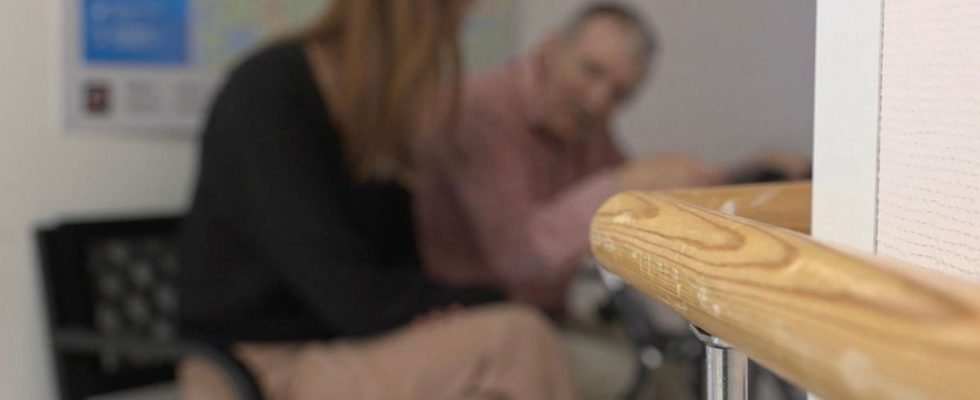Published on
Updated
Reading 2 min.
Waiting for a bus that will never pass is what a Swedish retirement home offers its dementia patients.
A fictitious bus stop installed four years ago in a corridor of the Södertälje health facility, west of Stockholm, is used in the care of elderly people who ask to go home.
In the narrow neon-lit passage, a bench overlooked by a map of the city and a sign bearing the logo of the Swedish capital’s transport company faces a plastered wall. A poster specifies the timetables of the imaginary bus.
Caroline Wahlberg, head of the establishment behind the initiative, moves there with Edward, an octogenarian with piercing blue eyes but a lost look.
“At a certain stage of the disease, people with Alzheimer’s disease very frequently feel a form of worry, they want to go home.” she explains to AFP. “Some have already packed their bags to come and wait here“.
Although the bus stop is not frequented daily, its presence has been beneficial on many occasions, according to her. “We had a patient who came to see me every day, several times a day. She asked for her parents to come pick her up. Coming to sit on the bench here, waiting and talking, it calmed her, it made her happy. Then we could go eat or watch TV“.
Wake up memories
As early as 2008 in Germany, fake bus stops were built in the parks of some retirement homes to reduce wandering among elderly people and provide them with a place where they would instinctively go to sit.
But in this Swedish retirement home which currently accommodates 17 people, the system is integrated into the therapeutic care of patients.
“It brought change here” underlines Louise Bass, nurse who has worked in the establishment for thirteen years.
The bench is especially useful at the end of the day, when patients are most feverish. “Everyone has already taken the bus, so when they see the sign they recognize it immediately, they tell themselves that the bus will pass. If we sit with them and talk to them, they forget. We talk and they forget that they wanted to go out, it really helps.”
“It’s a way of waking up memories” says Rebecka Gabrielsson, manager of some of the municipality’s retirement homes. “We can talk about where they worked, where they traveled, it helps them with their symptoms.”.
Is lying to vulnerable patients beneficial or even morally acceptable? In 2019, a publication from the Israeli National Institute for Health Policy (IJHPR) dedicated to the issue of fake German bus stops asks the question.
If the objective of the device is to reduce the elderly’s attempts to escape, it can also reinforce the feeling of frustration and disappointment to which these patients are already exposed, according to this study.
